Liz Barnes and Donny Walker, Middle Tennessee State University assistant biology professors, each recently cinched $1 million National Science Foundation early CAREER grants — a major career milestone after both started from humble beginnings to become highly successful scientists.
“I come from a first-generation, low-income background, and many of our students often do, too,” Barnes said. “I hope to inspire our students that this type of success is possible…. It’s been a dream come true.”
“I come from a working-class, blue-collar family, and no one had ever been to college,” Walker said. “I started out not knowing these opportunities were possible or even accessible to me.”

Similar to Barnes’ and Walker’s background, MTSU’s current student population is made up of 31% first-generation and 34% low-socioeconomic status students. University President Sidney A. McPhee proudly touts MTSU as “Tennessee’s university” — accessible to and meant for everyone.
“We provide opportunities for the average Tennessean,” McPhee said at this year’s Nashville, Tennessee, True Blue Tour recruiting stop. “We want to make a difference in the lives of all Tennesseans.”
Barnes and Walker went on to complete their doctorates, earn faculty positions, become multigrant-winning researchers and land the CAREER, known as one of the most “well-known and highly sought-after grants for pre-tenured faculty across the country,” according to Greg Van Patten, dean of the College of Basic and Applied Sciences.

Now, equipped with their five-year CAREER grants, Barnes and Walker plan to use them not only to further their research but to offer MTSU students, many with stories similar to their own, research positions and opportunities on their projects.
“We want to train the next generation of microbiome scientists,” Walker said about his work. “We’ll recruit them into the lab for semester and yearlong projects with students fully immersed in the research lab and getting experience doing all the same things we do with data, which eventually could be analyzed, presented or published to encourage a future career or education in the field.”
Said Barnes: “I proposed a course-based undergraduate research experience to support my project. We have a lot of student research opportunities at MTSU, but there are only so many faculty mentors available, so a course makes access to research more inclusive and lowers barriers to gaining research experience.”
Personal, scientific evolution
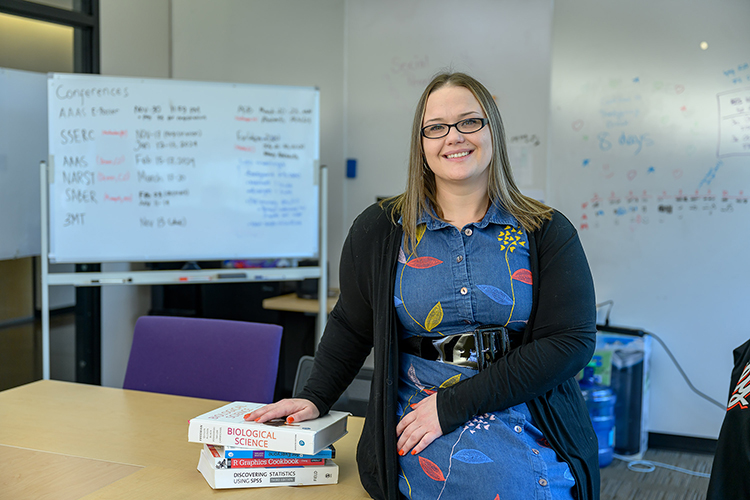
Barnes grew up in Phoenix, Arizona, and described her household as “tumultuous” — her mother a single teenager when Barnes was born who developed an addiction to powerful prescription painkillers.
“I decided at 16 to take my life into my own hands, move out of my house and become an independent adult,” Barnes said. “I got a job as a full-time waitress at Denny’s to support myself, and I had to drop out of high school while I built some financial stability.”
After three years of work, Barnes said she wanted to excel beyond her diner role as a waitress, so she enrolled in her local community college after learning she could test in without a high school or GED diploma.
“I spent about four years at Glendale Community College and then transferred to Arizona State University,” she said. “I started community college thinking I wanted to be a medical doctor, so I had to take all the prerequisites for medical school. That’s when I fell in love with biology and became fascinated by evolution.”
At ASU, Barnes’ interest in evolution shifted to an interest in evolution and science communication.
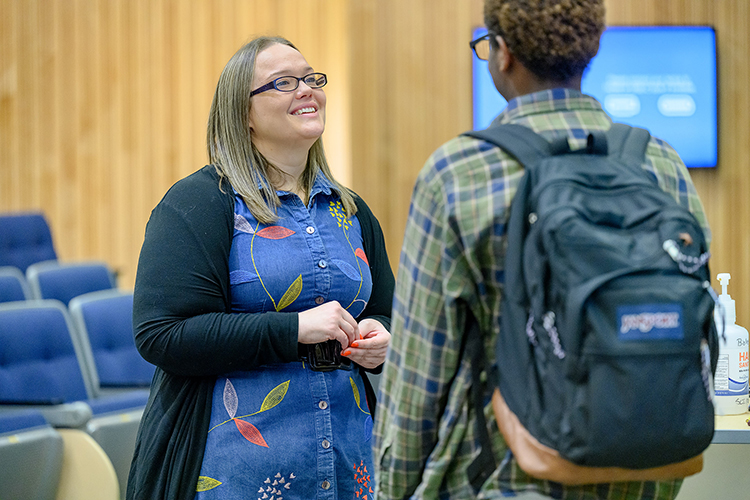
“I learned there was a breakdown in scientists’ communication to their students about controversial topics, like evolution, and I wanted to do research to learn how to bridge these gaps,” she said.
Barnes completed her master’s and doctorate degrees while pursuing and landing several NSF grants to research and develop what became a research-based guide of best evolution teaching practices for science educators — the Religious Cultural Competence in Evolution Education.
By the time Barnes began looking for a faculty position, she had multiple offers, but she said MTSU felt right.
“I feel like I could really pay my own experience forward,” she said. “It’s a state school like my alma mater, and Tennessee is historically significant for evolution education because of the Scopes Monkey Trial.”
The state of Tennessee v. John Thomas Scopes adjudicated on a high school teacher accused of teaching human evolution, which was in violation of the state’s anti-evolution education laws at the time in 1925.
Now, after three and a half years at MTSU; a son attending the university-affiliated Homer Pittard Campus School; a husband, Johnathan Jackson, working as the Biology Department’s lab coordinator; and the major CAREER win, Barnes says she has truly become a part of the True Blue family.
Ripe with potential
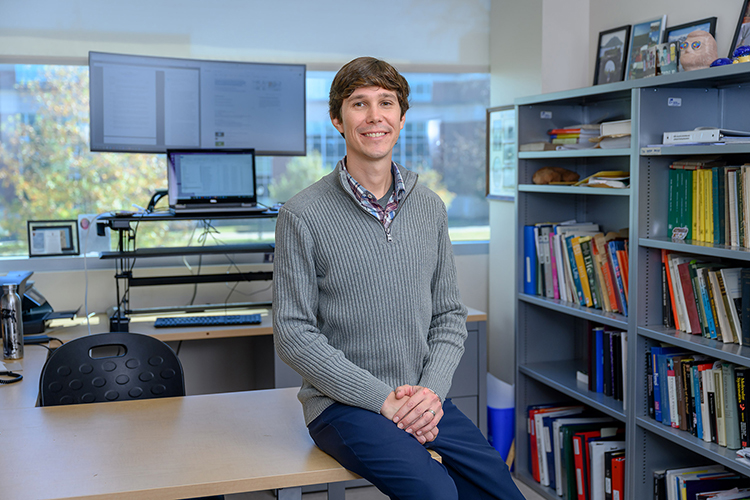
Walker grew up in Buffalo, New York, and as a lover of the outdoors, envisioned growing up to be a park ranger before he decided to pursue further education at his local community college.
“I fell in love with biology right away,” said Walker, who then transferred to SUNY College of Environmental Science and Forestry in Syracuse, New York. “One of the program’s classes had students spend an entire summer working in Adirondack Park National Historic Landmark in St. Lawrence County, New York, to learn how to do hands-on assessment and monitoring of a biological and ecological environment.”
The course and its professor, Alex Weir, opened Walker’s eyes to pursuing his passion at the graduate level and beyond and helped Walker uncover his enjoyment of research both in the field and in the lab.
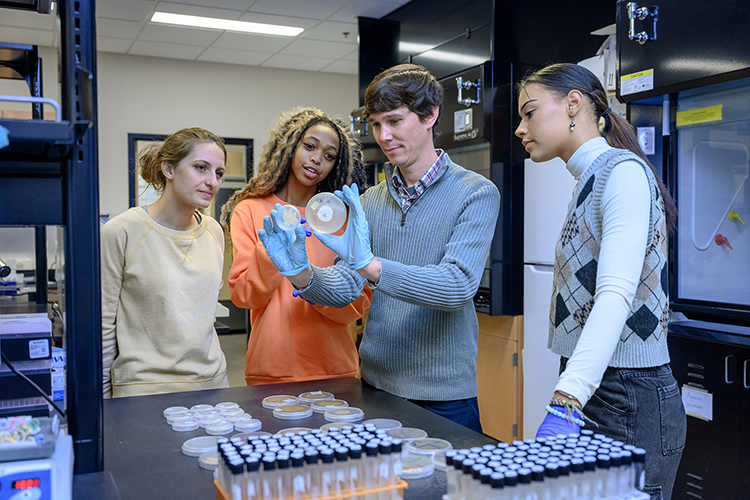
“I just loved looking down the microscope,” Walker said, and his path toward his career’s focus on the relationship between bacteria and fungi was born.
Walker, like Barnes, has earned multiple awards for his research during his graduate education, previous faculty positions and since coming to MTSU in 2018. Walker said the faculty within his department and college and staff from the Office of Research and Sponsored Programs have been instrumental in supporting him during his five-year road to the CAREER grant.
“(They) all supported me financially with funding research and giving me adequate time to develop the proposal,” he said. “I’ve had a lot of really great colleagues and mentors, and there’s no possible way to have done it without them.”
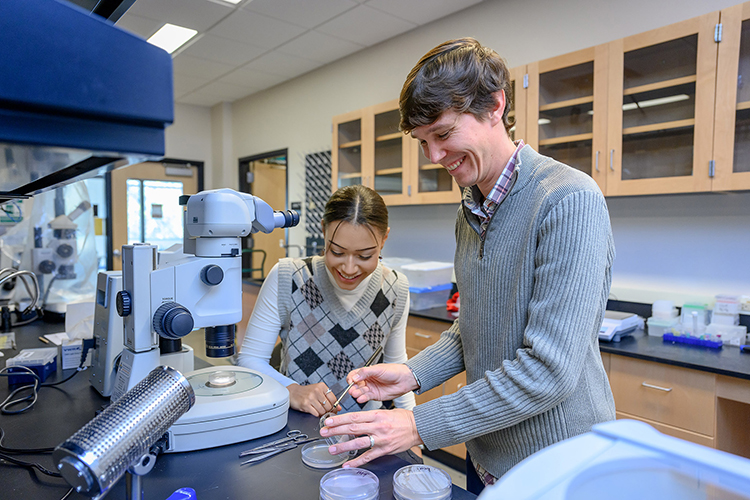
Learn more about the opportunities at MTSU’s Department of Biology at https://www.mtsu.edu/biology/. Learn more about the support and opportunities at the Office of Research and Sponsored Programs at https://www.mtsu.edu/research/.
— Stephanie Wagner (Stephanie.Wagner@mtsu.edu)


COMMENTS ARE OFF THIS POST